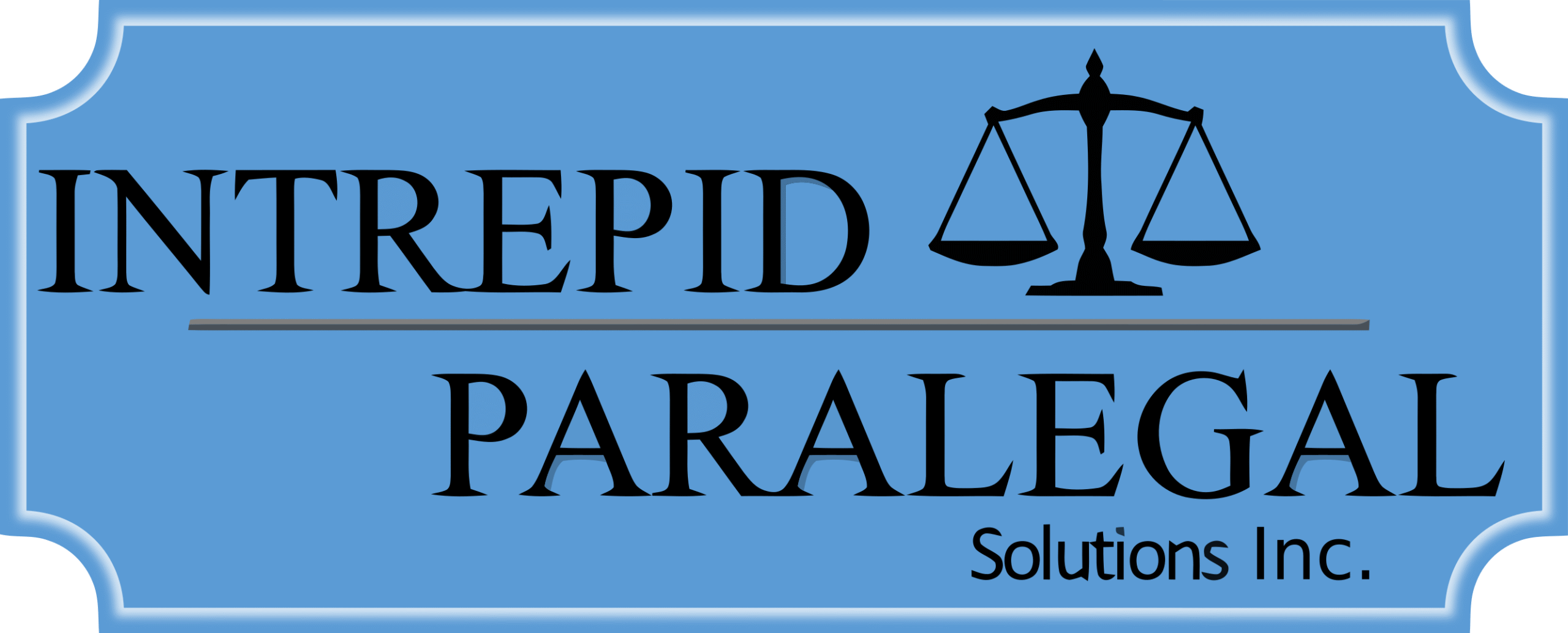Regulatory changes profoundly influence the legal profession, redefining how paralegals operate and contribute to their legal teams. From emerging privacy laws to new ethical standards, these updates demand vigilance, adaptability, and a commitment to continuous learning. At Intrepid Paralegal Solutions, we equip our team with the tools and knowledge to navigate these changes, ensuring seamless compliance and exceptional service delivery. In this guide, we explore the latest regulatory shifts affecting paralegals, practical strategies to adapt, and the steps necessary to thrive in an ever-changing legal environment.
Current Regulatory Challenges in the Legal Field
The dynamic nature of the legal industry introduces a range of regulatory challenges for paralegals. Staying compliant requires a clear understanding of these shifts and their implications.
Key Areas of Impact
- Data Privacy and Security: The introduction of regulations like the General Data Protection Regulation (GDPR) in Europe and the California Consumer Privacy Act (CCPA) in the United States has heightened the standards for handling client information. Paralegals must ensure data is stored securely, shared appropriately, and managed transparently to avoid legal repercussions.
- Technology Integration: The increasing use of tools like e-discovery software, automated document drafting, and AI-powered legal research has introduced new rules surrounding ethical and secure technology use. Regulatory bodies are updating guidelines to reflect the evolving role of technology in legal practice.
- Access to Justice Initiatives: To address gaps in legal services, some jurisdictions have expanded the scope of paralegal responsibilities. In certain cases, paralegals are permitted to perform limited legal services, offering underserved communities affordable access to justice.
- Remote Work Compliance: The rise of remote work has created challenges regarding document handling, virtual communication, and cross-jurisdictional compliance. Paralegals must navigate diverse state rules while ensuring confidentiality and secure information exchange.
These challenges highlight the need for paralegals to remain proactive and resourceful.
Staying Ahead of Regulatory Changes
Navigating regulatory changes requires a proactive and informed mindset. Paralegals must stay vigilant and adaptable to maintain compliance and efficiency.
- Stay Informed: Regularly tracking new laws, regulations, and guidelines is critical. Subscribing to industry publications, attending webinars, and enrolling in relevant training programs provide valuable insights into the latest developments. This ensures paralegals are prepared to respond quickly and effectively to changes.
- Foster Collaboration: Clear and consistent communication with attorneys and team members is essential. Working collaboratively ensures everyone is aligned on compliance requirements and helps identify potential challenges early. This teamwork approach streamlines workflows and fosters a culture of accountability.
- Utilize Technology: Legal technology offers powerful tools to manage compliance. Automated solutions can track regulatory deadlines, flag non-compliance risks, and simplify administrative tasks. For example, case management software streamlines document tracking and ensures adherence to confidentiality protocols.
Implementing these practices helps paralegals remain flexible and prepared, reducing risks and supporting their teams through regulatory transitions.
Data Privacy: A Key Responsibility
In today’s digital-first legal world, safeguarding sensitive client data is critical. Paralegals play a vital role in ensuring compliance with stringent regulations like GDPR and CCPA, which mandate strict data handling practices. Non-compliance risks hefty fines, reputational damage, and loss of client trust.
As the first line of defense, paralegals must adopt proactive strategies to protect client confidentiality and manage risks, making data privacy a cornerstone of their responsibilities.
Best Practices for Data Privacy
- Encryption: Encryption is one of the most effective ways to secure client information. By converting data into a coded format, it ensures that unauthorized users cannot access sensitive details. Whether sharing case files or storing them digitally, encrypted communication platforms and storage systems are essential tools for maintaining confidentiality.
- Access Control: Implementing role-based access protocols limits who can view or modify specific documents. By restricting access to only authorized personnel, paralegals can reduce the risk of internal breaches while maintaining strict oversight of sensitive materials.
- Routine Audits: Regularly reviewing data management practices is vital for identifying vulnerabilities. Audits help ensure compliance with evolving regulations and provide opportunities to refine security protocols. Paralegals can collaborate with IT teams to establish comprehensive audit schedules.
At Intrepid Paralegal Solutions, integrity is at the heart of our operations. Our dedication to data privacy reflects our commitment to upholding the trust our clients place in us, ensuring their information remains secure at all times.
Adapting to Remote Work Regulations
Remote work presents new regulatory challenges, particularly regarding virtual communication, jurisdictional requirements, and secure document handling.
Key Considerations for Remote Work
- Secure Connections: Using VPNs (Virtual Private Networks) and secure cloud platforms is non-negotiable for remote access to sensitive case files. These tools encrypt data during transmission, safeguarding it from potential breaches while enabling seamless collaboration.
- Jurisdictional Awareness: Different states may have varying requirements for virtual processes, such as notarizations or electronic signatures. Staying informed about these nuances ensures paralegals can provide accurate and compliant support, regardless of location.
- Document Handling: Developing protocols for securely transferring, storing, and disposing of physical and digital documents is essential. For instance, shredding sensitive papers after use or utilizing secure file-sharing platforms minimizes the risk of data leaks.
By mastering these considerations, paralegals can continue to deliver high-quality support while ensuring compliance with remote work regulations.
Expanding Responsibilities: A New Era for Paralegals
To address the access-to-justice gap, some jurisdictions now allow paralegals to provide limited legal services in areas like small claims and family law under strict regulations.
These changes highlight the growing importance of paralegals in meeting underserved communities’ needs. However, stepping into these roles requires thorough preparation and a dedication to professional excellence.
Preparing for Expanded Roles
- Certifications: Earning additional credentials, such as the Certified Paralegal (CP) designation from NALA, equips paralegals with the specialized knowledge needed to handle these responsibilities effectively.
- Pro Bono Engagement: Volunteering for legal aid programs allows paralegals to gain valuable experience while contributing to community welfare. These opportunities also help paralegals build their professional reputations.
- Collaboration with Attorneys: Close supervision and open communication with attorneys ensure that paralegals operate within their legal authority. This collaboration fosters accountability and adherence to regulatory expectations.
These expanded roles highlight the legal profession’s recognition of paralegals as integral contributors to delivering accessible and efficient legal services.
Maintaining Ethical Standards
As regulations evolve, the ethical foundations of the legal profession remain unchanged. Paralegals are bound by core principles such as confidentiality, transparency, and competency, which form the basis of their professional integrity.
Ethical conduct is particularly important when navigating new responsibilities or adopting innovative technologies. Upholding these principles ensures that paralegals maintain trust with their clients and legal teams, even amid significant change.
Key Ethical Considerations
- Confidentiality: Protecting client information is paramount, whether dealing with physical documents or digital files. Paralegals must implement strict security measures to safeguard this information.
- Transparency: Clear communication about how regulatory changes impact case strategies or timelines is essential for managing client and attorney expectations.
- Competency: Ongoing education and training are critical for staying proficient in new areas of responsibility. By pursuing continuous learning, paralegals can ensure their skills align with current regulatory and ethical standards.
At Intrepid Paralegal Solutions, our values of communication and excellence guide us in upholding these ethical commitments, ensuring we consistently deliver trustworthy and effective services.While regulatory changes present challenges, they also offer opportunities for growth and innovation. Paralegals who embrace these changes with confidence can refine their skills, improve their workflows, and strengthen their contributions to their legal teams. At Intrepid Paralegal Solutions, we view regulatory updates as a chance to enhance our services and reaffirm our commitment to quality. By staying informed, leveraging technology, and prioritizing ethics, we ensure our team remains resilient and adaptable in a dynamic legal landscape.

